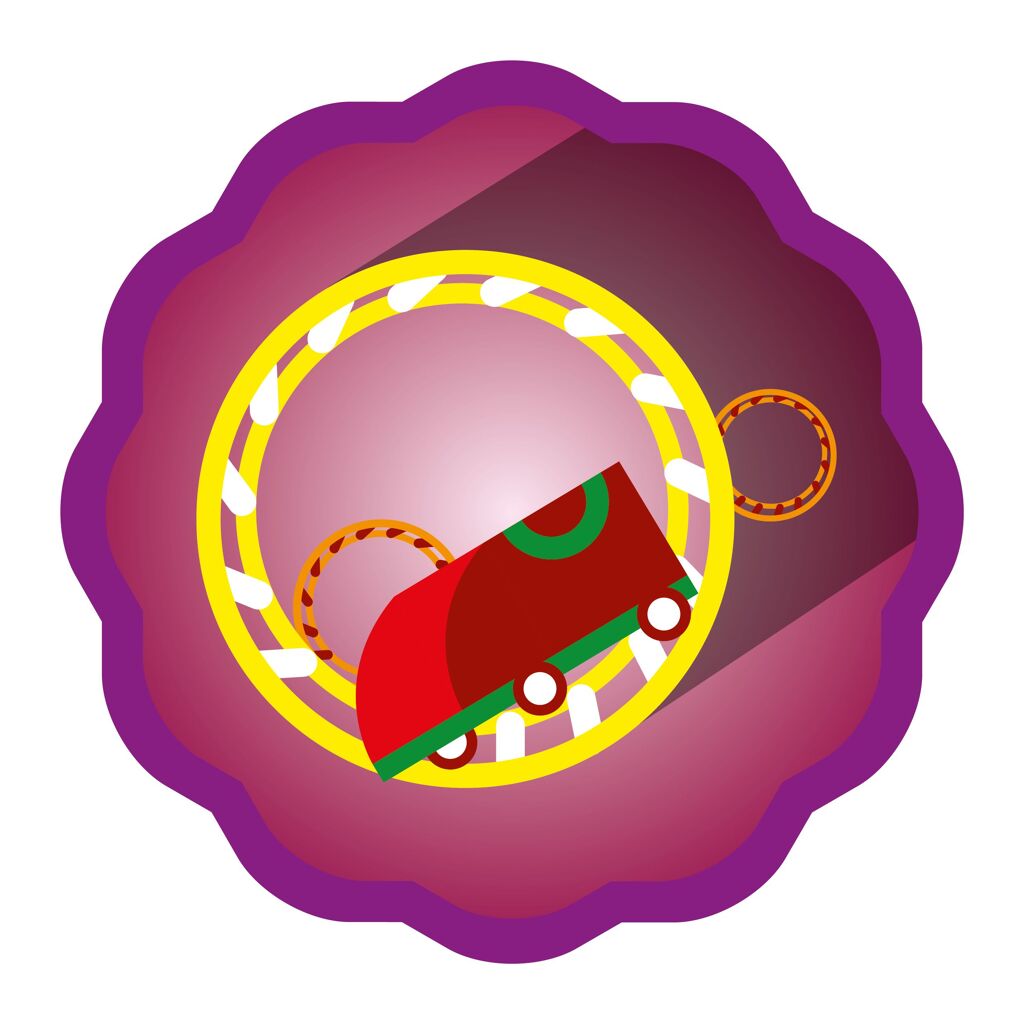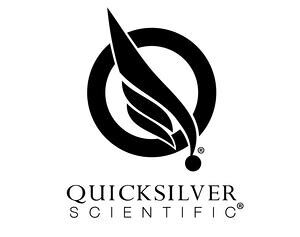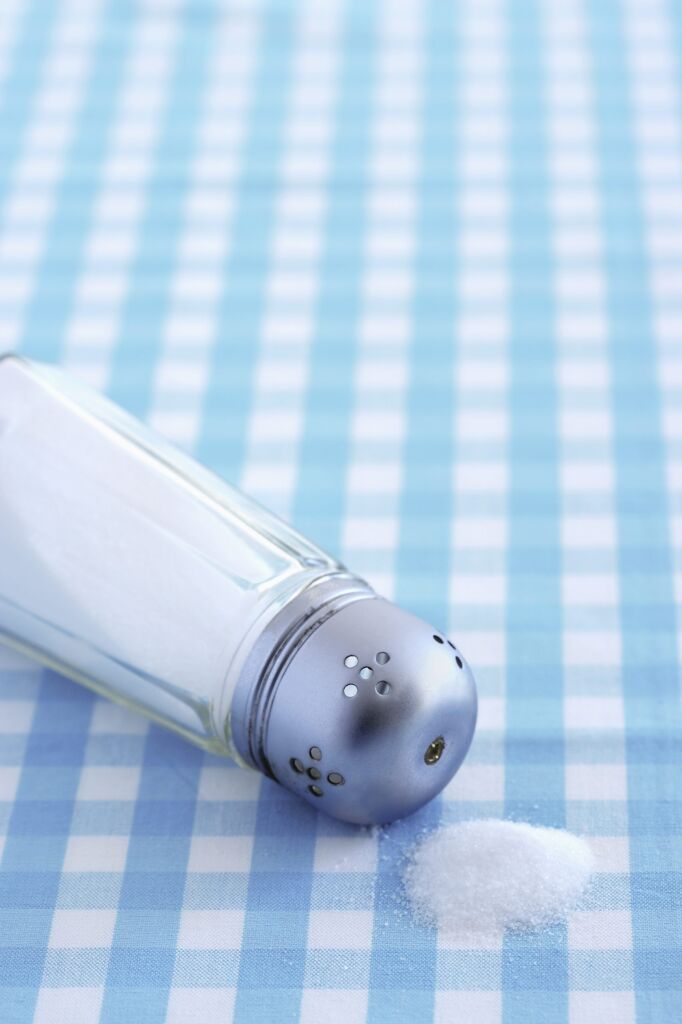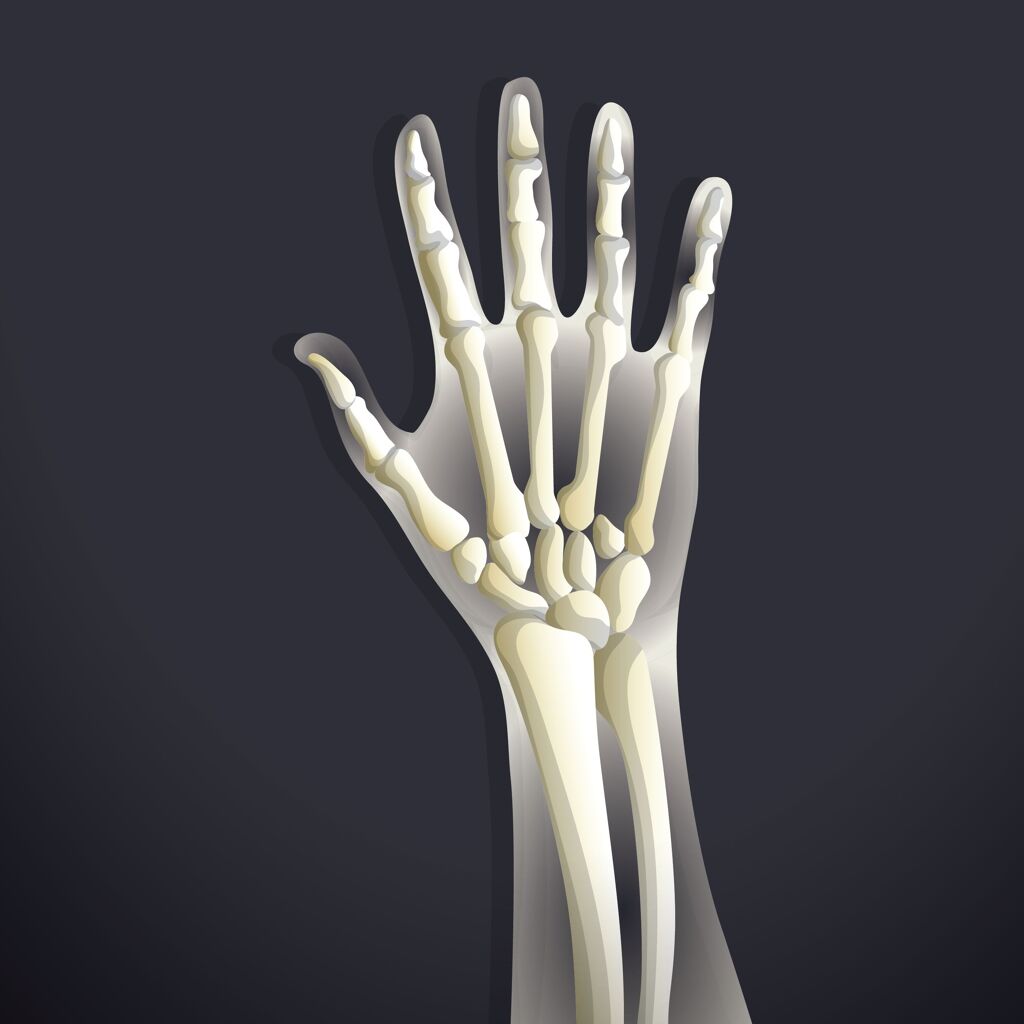Getting off the Blood Sugar Rollercoaster: Education About Reactive Hypoglycemia

Reactive Hypoglycemia: Over the last several weeks we’ve talked about several topics related to leaky gut, autoimmunity and gluten sensitivity. This week we’re going to shift gears a bit and cover how to keep blood sugar stable. More specifically, this article will focus on treatments for reactive hypoglycemia (RH), which is a type of blood sugar dysregulation.
Functional medicine considers RH to be a lifestyle disorder that results from the overconsumption of refined carbohydrates and sugar and is a form of “post prandial hypoglycemia,” which means that the hypoglycemia occurs after eating a meal. In Western medicine, true reactive hypoglycemia is considered to be relatively rare and is often referred to as “idiopathic post prandial hypoglycemia,” or reactive hypoglycemia with an unknown cause.
But even research which expresses skepticism about the prevalence of RH will often observe that people with RH “are characterized as ingesting excessive quantities of refined carbohydrate.” This same study goes on to conclude that one critical arm of treatment is the restriction of refined carbohydrates, which would also include sugar (1).
Consequences of reactive hypoglycemia
I often describe RH as “a blood sugar rollercoaster.” Blood sugar dysregulation and reactive hypoglycemia have been associated with an increased risk of many diseases, including diabetes as well as heart disease and Alzheimer’s disease. Some research is beginning to show that highly variable blood sugar may be more damaging to the body than chronic hyperglycemia.
Reactive hypoglycemia is also often implicated in mood and anxiety disorders like depression and bipolar disorder in particular. A blood sugar rollercoaster does not promote a stable mood. In contrast, stable blood sugar helps maintain a stable mood and even temperament. RH has also been implicated as a significant causative factor for violence and aggression in the prison population.
Perhaps most striking is the link between RH and metabolic disease in general and Type 2 diabetes in particular. According to the 2014 Statistics Report published by the CDC, 21 million Americans, or 9.3% of the United States population have Type 2 diabetes(2).
HPA axis dysregulation and Reactive Hypoglycemia
Another possible consequence of reactive hypoglycemia is problems with the hypothalamus – pituitary – adrenal axis. When blood sugar crashes and a person becomes hypoglyemic, the adrenal glands are stimulated and release cortisol. Cortisol a stress hormone that raises blood sugar through a process call gluconeogenesis.
Various causes can lead to HPA dysregulation and adrenal hypofunction, which can in turn result in chronically low levels of cortisol. Long-standing reactive hypoglycemia can be a primary cause of functionally depressed cortisol, as the adrenal glands are frequently stimulated in order to raise blood sugar. Over time, this increased demand on the adrenals can lead to chronically depressed cortisol levels.
Functionally low cortisol, also known as hypocorticolism, can result in a decreased ability to handle blood sugar dips. A person who easily becomes hypoglycemic when a meal is missed may have functional hypocorticolism. Chief signs and symptoms include low blood sugar, low blood pressure, frequent urination and fatigue. This indicates HPA downregulation. Reactive hypoglycemia can lead to a vicious cycle of hypoglycemia that the adrenals are unable to handle.
Functional hypocorticolism can be tested for by performing a DUTCH adrenal dried urine lab test, which evaluates cortisol levels four times over the course of a 24 hour period. This type of testing, performed by a functional medicine practitioner, can reveal whether HPA downregulation is at the root of hypoglycemia symptoms.
To Read About Blog Topic, Scroll Down
Want To Work With Our Clinic?
Do you have a chronic or mystery illness that no one has been able to help you with? Are you simply wanting to re-connect with a healthier version of yourself? It’s Time To Finally Feel Better!
Lorem ipsum dolor sit amet, consectetur adipiscing elit. Ut elit tellus, luctus nec ullamcorper mattis, pulvinar dapibus leo.
Causes of reactive hypoglycemia
RH is a lifestyle disorder that primarily results from overconsumption of refined carbohydrates and sugar in the absence of sufficient protein and fat, but carbohydrates are not the only cause. Other factors can influence blood sugar and contribute to RH as well, such as H. pylori infection of the stomach mucosa. A third cause of reactive hypoglycemia can be toxic metal poisoning.
Overconsumption of refined carbohydrates and sugar can lead to reactive hypoglycemia
When we consume a well-balanced meal of moderate carbohydrate, adequate protein and plenty of healthy fats, blood sugar is maintained within a fairly narrow range. After eating, blood sugar rises and gradually declines over the course of several hours, due to the effects of insulin. This anabolic hormone prompts the body to carry circulating glucose out of the bloodstream and into cells to be burned for energy. After a meal, a modest increase in blood sugar gradually returns to baseline several hours later, at which point we would eat another meal.
In contrast, a reactive hypoglycemia diet is characterized by excessive consumption of refined carbohydrates and sugar, often in the absence of sufficient protein and fat. Refined carbohydrates and sugar cause a spike in blood sugar, which quickly rises to dangerous levels. In response to soaring blood glucose levels, the pancreas releases large amounts of insulin in an attempt to bring blood sugar back down.
In reactive hypoglycemia, the amount of insulin secreted by the pancreas exceeds the amount needed to control blood sugar and hyperglycemia gives way to hypoglycemia, or low blood sugar. This typically happens 1-3 hours after a meal and results in characteristic hypoglycemia symptoms of shaking, sweating, feeling cold, dizziness, and difficulty thinking. It can also lead to irritable and even aggressive behavior, or what many people commonly refer to as being “hangry.”
H. pylori
Helicobacter pylori is a gram-negative bacterium that infects the stomach and sometimes the upper small intestine. Due to its unique spiral shape, H. pylori can burrow into the mucus lining the stomach where it is protected from the harsh acidic environment of the stomach.
H. pylori increases the secretion of gastrin, a key digestion hormone that in turn stimulates the release of insulin. As a result, higher levels of insulin are secreted after meals, resulting in hypoglycemia symptoms. For this reason H. pylori appears to contribute to RH in some people (3) (4).
Worldwide, H. pylori is a very common infection. Scientists estimate that half of the world’s population is infected (5), but that number appears to be much lower in the United States. One large review of biopsies found a prevalence of 7.5% in the US (6). Your functional medicine practitioner can order an H. pylori breath test if s/he suspects H. pylori may be present.
Toxic metal poisoning & trace mineral deficiency and reactive hypoglycemia
A number of toxic metals, commonly referred to as “heavy metals,” have been implicated in reactive hypoglycemia. Another potential cause that can occur either in combination with, or independent of toxic metal accumulation, is deficiency of several trace minerals.
Toxic metals are described in research as being “hyperglycemic,” or leading to elevated blood sugar, whereas several nutritive trace minerals enhance the effects of insulin and lower blood sugar. These metals are “hypoglycemic” and have demonstrated positive clinical applications for metabolic disease.
Hyperglycemic toxic metals include arsenic, mercury, iron, lead, nickel and cadmium. Your functional medicine practitioner can test for toxic metal accumulation in the body and help you reduce this toxic burden if necessary.
Hypoglycemic minerals include zinc, vanadium, chromium and magnesium. These minerals can be toxic or nutritive, depending on the dose. In many cases, both depressed and elevated levels of these minerals have negative effects.
Zinc is required by the pancreatic beta cells for insulin secretion, synthesis and storage. Deficiency of zinc is associated with both hyperglycemia and diabetes (7). However, there can be negative consequences of elevated zinc levels as well. A rat study showed that metabolic syndrome was promoted by long term zinc supplementation (8).
Vanadium enhances the effects of insulin by inhibiting tyrosine protein phosphatases, which upregulates phosphorylation of various insulin pathway intermediaries (9). On the other hand, acute vanadium intoxication can lead to life-threatening hypoglycemia (10).
Chromium lowers blood sugar by promoting glucose catabolism in muscle cells and lipocytes (fat cells) (11). Chromium also increases insulin sensitivity and reduces inflammatory markers TNF-alpha, resistin and interleuken-6 (12). Of the three, chromium apperas to be the most safe and chromium toxicity appears to be rare.
Magnesium is unequivocally an essential nutrient. It is a cofactor for carbohydrate metabolism through its role in ATP-dependant enzymatic reactions. In addition, magnesium deficiency is associated with insulin resistance and Type 2 diabetes (13).
Treatments for reactive hypoglycemia
The most important component of addressing reactive hypoglycemia is the diet. No magic combination of supplements or exercise can compensate for a diet that is too high in refined carbohydrates and sugar. The unavoidable first step in stabilizing blood sugar involves making dietary changes. Keep reading for more detailed information on how to eat to avoid RH.
Key points of the Reactive Hypoglycemia diet:
- Include adequate protein in the diet from organic, pasture-raised beef, lamb, and chicken; wild-caught cold-water fish like salmon and sardines; and pseudo-grains like quinoa.
- Make sure every meal and snack has some protein
- Include adequate healthy fats like unrefined coconut oil, avocado, cold-pressed olive oil and ghee.
- Fats provide stable energy that is metabolized more slowly than carbohydrates, which promotes more stable blood sugar.
- Avoid unhealthy fats such as vegetable oils, inluding soybean, safflower, corn, and Canola. Also avoid fried foods.
- Avoid refined carbohydrates, sugar and artificial sweeteners
- Focus on starchy vegetables like carrot, parsnip, sweet potato, taro and yucca root.
- Reduce sugar and try stevia-sweetened alternatives like Lily’s chocolate
- Eat regularly to keep blood sugar stable and don’t skip meals!
- Pay attention to feelings of hunger and give your body what it needs to function properly.
- Eat a snack every 2-3 hours at first, then space back meals back out as blood sugar stabilizes.
- Consume healthy fats before bed. Drink 1-3 tsp coconut oil in a cup of chamommile tea before bed
Nutrients & Botanicals and Reactive Hypoglycemia
Vitamin C and Vitamin E, when combined with chromium were shown to improve fasting glucose, HgA1C and insulin sensitivity (11).
Chromium itself has been shown to reduce elevated blood sugar levels but caution should be exercised with all hypoglycemic nutrients not to push blood sugar too low.
Magnesium is a commonly deficient nutrient and low levels have consistently been found in people with elevated insulin (14) (15) (16).
Cinnamon can help lower blood sugar levels and has also been shown to lower triglycerides, LDL cholesterol and total cholesterol (17).
Berberine is an herb commonly used for its anti-inflammatory and anti-diabetic properties. In addition to lowering blood sugar, berberine improves triglyerides, HbA1C fasting insulin and total cholesterol (18). The hypoglycemic effects of berberine are well established and may be useful in RH as well. The mechanism of action for berberine is not fully understood but one primary component appears to be stimulation of the GLUT4 receptor. Glucose transporter 4, or GLUT4 shuttles glucose out of the blood stream and into skeletal muscle, thereby lowering blood sugar.
Gynostemma is another herb with hypoglyemic properties. Although not as well researched as berberine, gynostemma has shown benefit in Type 2 diabetes (19) and may be also useful in regulating blood sugar in RH. Gynostemma appears to work by inhibiting the PTP1B enzyme. Levels of PTP1B are inversely correlated with insulin sensitivity and obesity in mice (20).
Blood sugar *balance* and Reactive Hypoglycemia
It’s important to remember that a primary mechanism of action for many of these nutraceuticals is lowering blood sugar. In cases of elevated blood sugar, this would be desirable. But if used improperly when blood sugar is already too low, they may add insult to injury by lowering blood sugar even further. Blood sugar is a balancing act and your functional medicine practitioner can help you determine the best course of action.
It’s difficult to provide specific supplement advice for reactive hypoglycemia that will help everyone because each case is different. That being said, these nutraceuticals are probably best used to control and prevent hyperglycemic blood sugar spikes that trigger the massive insulin response associated with RH. Regulating blood sugar while addressing other areas like diet, H. pylori and other related issues can help a person to feel better sooner and make the transition towards stable blood sugar a bit faster and easier.
Other Treatment Options For Reactive Hypoglycemia
Testing: If you find that eating a more RH-friendly diet doesn’t improve your symptoms, consider delving deeper into other causes like H. pylori with testing from your functional medicine practitioner. Another important testing option is DUTCH adrenal dried urine testing, which can confirm or rule out HPA axis downregulation. This test, which was mentioned earlier in the HPA Axis Dysregulation section, can provide valuable information to illuminate the root cause behind reactive hypoglycemia.
Mind root cause: If you struggle to reduce sugar and refined carbohydrates it can also be valuable to spend some time reflecting on what role these substances fill in your life. Are there unexpressed feelings or unresolved conflict underlying this struggle? Are sweet or starchy indulgences a way to manage loneliness or boredom? Approach these questions from a non-judgmental place of compassionate curiosity. Strive to explore and understand your cravings. They will likely reveal clues that will help you resolve your cravings on a deeper level than resorting to will power alone will.
Sleep: Good quality sleep, and the right amount of it, is crucial (21).
Want help with blood sugar and reactive hypoglycemia? We offer free health evaluation calls (button on left below) to help determine if our medical practice is a fit. If you are a clinician and want to advance your training, you can get learn more about becoming certified in functional medicine by clicking the button on the right below.
Book My Free Phone Health Evaluation Functional Medicine Certification for Clinicians
References
- Hofeldt, Fred D. “Reactive Hypoglycemia.” Metabolism 24.10 (1975): 1193-208. Web.
- “2014 National Diabetes Statistics Report.” Centers for Disease Control and Prevention. Centers for Disease Control and Prevention, 15 May 2015. Web. 12 May 2017.
- Açbay, Özer, Aykut Ferhat Çelik, and Sadi GündoÄŸdu. “DoesHelicobacter Pylori-induced Gastritis Enhance Food-stimulated Insulin Release?” Digestive Diseases and Sciences41.7 (1996): 1327-331. Web.
- Açbay, Ö., P. Kadioglu, A. Celik, and S. Gündogdu. “Helicobacter Pylori-induced Gastritis May Contribute to the Occurrence of Postprandial Symptomatic Hypoglycemia.” Gastroenterology 114 (1998): n. pag. Web.
- Brown, L. M. “Helicobacter Pylori: Epidemiology and Routes of Transmission.” Epidemiologic Reviews 22.2 (2000): 283-97. Web.
- Sonnenberg, Amnon, Richard H. Lash, and Robert M. Genta. “A National Study of Helicobactor Pylori Infection in Gastric Biopsy Specimens.” Gastroenterology 139.6 (2010): n. pag. Web.
- Capdor, Jasmine, Meika Foster, Peter Petocz, and Samir Samman. “Zinc and Glycemic Control: A Meta-analysis of Randomised Placebo Controlled Supplementation Trials in Humans.” Journal of Trace Elements in Medicine and Biology 27.2 (2013): 137-42. Web.
- Singh, Kshetrimayum Birla. “Long Term Excessive Zn Supplementation Induced Oxidative Stress in Wistar Rats Fed on Semi-Synthetic Diet.” Food and Nutrition Sciences 03.06 (2012): 724-31. Web.
- Niu, Xia, Ruyue Xiao, Na Wang, Ziwei Wang, Yue Zhang, Qing Xia, and Xiaoda Yang. “The Molecular Mechanisms and Rational Design of Anti-Diabetic Vanadium Compounds.” Current Topics in Medicinal Chemistry 16.8 (2015): 811-22. Web.
- Boulassel, Brahim, Nouredine Sadeg, Olivier Roussel, Martine Perrin, and Hafid Belhadj-Tahar. “Fatal Poisoning by Vanadium.” Forensic Science International 206.1-3 (2011): n. pag. Web.
- Lai, Ming-Hoang. “Antioxidant Effects and Insulin Resistance Improvement of Chromium Combined with Vitamin C and E Supplementation for Type 2 Diabetes Mellitus.” Journal of Clinical Biochemistry and Nutrition 43.3 (2008): 191-98. Web.
- Jain, Sushil K., and Krishnaswamy Kannan. “Chromium Chloride Inhibits Oxidative Stress and TNF-α Secretion Caused by Exposure to High Glucose in Cultured U937 Monocytes.” Biochemical and Biophysical Research Communications 289.3 (2001): 687-91. Web.
- Garg, Neetika, Janice Weinberg, Sandeep Ghai, Gitana Bradauskaite, Matthew Nuhn, Amitabh Gautam, Nilay Kumar, Jean Francis, and Joline L. T. Chen. “Lower Magnesium Level Associated with New-onset Diabetes and Pre-diabetes after Kidney Transplantation.” Journal of Nephrology 27.3 (2014): 339-44. Web.
- Wang, Jinsong, Gioia Persuitte, Barbara Olendzki, Nicole Wedick, Zhiying Zhang, Philip Merriam, Hua Fang, James Carmody, Gin-Fei Olendzki, and Yunsheng Ma. “Dietary Magnesium Intake Improves Insulin Resistance among Non-Diabetic Individuals with Metabolic Syndrome Participating in a Dietary Trial.” Nutrients 5.10 (2013): 3910-919. Web.
- Hata, A., Y. Doi, T. Ninomiya, N. Mukai, Y. Hirakawa, J. Hata, M. Ozawa, K. Uchida, T. Shirota, T. Kitazono, and Y. Kiyohara. “Magnesium Intake Decreases Type 2 Diabetes Risk through the Improvement of Insulin Resistance and Inflammation: The Hisayama Study.” Diabetic Medicine 30.12 (2013): 1487-494. Web.
- Rumawas, Marcella E., Nicola M. Mckeown, Gail Rogers, James B. Meigs, Peter W.f. Wilson, and Paul F. Jacques. “Magnesium Intake Is Related to Improved Insulin Homeostasis in the Framingham Offspring Cohort.” Journal of the American College of Nutrition 25.6 (2006): 486-92. Web.
- Khan, A., M. Safdar, M. M. Ali Khan, K. N. Khattak, and R. A. Anderson. “Cinnamon Improves Glucose and Lipids of People With Type 2 Diabetes.” Diabetes Care 26.12 (2003): 3215-218. Web.
- Zhang, Yifei, Xiaoying Li, Dajin Zou, Wei Liu, Jialin Yang, Na Zhu, Li Huo, Miao Wang, Jie Hong, Peihong Wu, Guoguang Ren, and Guang Ning. “Treatment of Type 2 Diabetes and Dyslipidemia with the Natural Plant Alkaloid Berberine.” The Journal of Clinical Endocrinology & Metabolism 93.7 (2008): 2559-565. Web.
- Huyen, V. T. T., D. V. Phan, P. Thang, N. K. Hoa, and C. G. Östenson. “Antidiabetic Effect OfGynostemma PentaphyllumTea in Randomly Assigned Type 2 Diabetic Patients.” Hormone and Metabolic Research 42.05 (2010): 353-57. Web.
- Elchebly, M. “Increased Insulin Sensitivity and Obesity Resistance in Mice Lacking the Protein Tyrosine Phosphatase-1B Gene.” Science 283.5407 (1999): 1544-548. Web.
- Broussard, Josiane L., David A. Ehrmann, Eve Van Cauter, Esra Tasali, and Matthew J. Brady. “Impaired Insulin Signaling in Human Adipocytes After Experimental Sleep Restriction.” Annals of Internal Medicine 157.8 (2012): 549. Web.
Are You Suffering From A Chronic Illness?
Does your current health situation look like this…
- Do you feel that you have tried many things and either nothing works, or the treatment does not hold?
- Have you been told that there is nothing that can be done to reverse your illness and you just need to manage symptoms?
- Does your illness impact your work, your family, your happiness and your social life?
We specialize in finding answers and solutions for complicated chronic illness when people feel like they have tried everything. If this sounds like you, book a free call with us to see if we are the right fit for your health goals.
Dr. Miles has spoken for the following organizations:


















This article nearly gets to the heart of why RH is dietary control, but it makes the mistake of saying starchy vegetables should be part of the intake.
In my own personal balance of nutrition, I cannot eat them or most carbs, avoiding what triggers the insulin response is the logical approach.
I have been in ketosis for just over four years without a hypo, because avoidance of what causes the spike, stops the insulin response and ergo, no hypo!
However, this is the best article on RH from a medical practitioner that I have found!
Thanks for the information.
Hi Keith,
Thanks for your reply! Yes, some do better without starchy carbs on a ketogenic type of approach. Others, especially those with thyroid or HPA axis (adrenal hormone) dysfunction often do better with some starchy vegetables.
Thanks for your input!
Thank you for the good article. I think it is written for me…..suffering from RH was found to be triggered by H.Pylori infection/gastritis. Once I make sure I follow good protein diet and exclude simple carbs from the menu I am completely fine with the blood sugar.
Hi, again, I had heliocobacter pylori some ten years ago, and I believe was the cause or the anti biotics that altered my insulin response. Gut bacteria is so important to your endocrine health and the health of your body.
Because of a weakened initial insulin response, blood glucose levels spike quickly, called gastric dumping. The second insulin response is caused by the gastric dumping and higher than normal blood glucose levels. This secondary insulin response if too much, is called an overshoot. This excess of insulin causes the episode of hypoglycaemia.
Continuous fluctuations in blood glucose levels causes so many symptoms, going from hyper to hypo, hyper to hypo every day will cause so many health problems and brain function, especially anxiety and memory problems.
Dietary control is important and the balance of protein, vegetables, good healthy fats mainly saturated fats, and very low carb. This will help with control to stop the fluctuating bloods levels.
The longer your body is in normal blood glucose levels, the symptoms will ease and your health will improve.
If you have reactive hypoglycaemia or the symptoms of RH, then avoiding the cause of the symptoms is a logical step. And avoiding the carbs is that logical conclusion.
My best wishes to anyone who has suffered RH or similar conditions.
Thank you for guidance that makes so much sense! There are a lot of ’health’ articles that provide instructions on including whole wheat/grains — where if if I followed that — it would only exacerbate my RH condition. I became a pescatarian 20 years ago and carbed up in lieu of protein — which has caused weight gain and now RH. I’m getting off of this awful blood sugar rollercoaster by eating the foods that won’t cause me to become dizziy and impact my clear thinking immediately after eating high carb/sugar foods — which has been the case starting about a year ago. I’m going to live by what my body is telling me by eliminating the foods (mostly grains in my case) that cause so many problems for my stomach and given the symptoms I’ve experienced — since my body deserves me to make better choices…, consistently.
Thank you for this article.I am struggling with RH as a new problem I have developed.
Right now I feel so confused on what to eat when to eat the entire thing I seem to be doing all
wrong..this article has helped a lot and I am continuing to keep pushing until I get this right.
If you have any site or anything of any help it would be greatly appreciated.
Thank you
Sandi Camiolo
[email protected]
I just read all the answers and i can relate to every one.
I have RH, but the source of mine is weak adrenal function. I ate low carb for years so I had little insulin , but that in itself stresses the adrenals, so I crashed. Now, if I eat enough to stay sane, I gain wait constantly even if it is healthy carbs/food. Any carb will raise insulin, and even the healthy ones are issues at my level of issue. Most of the supplements lower blood sugar, which is a tricky dance for those whole blood sugars plummet. I do like magnesium for insulin sensitivity, though. I am currently trying to “graze” one one or two of my extremely balanced meals each day to keep blood sugar up without consuming excess calories. Has anyone used that as a strategy?
I am not sure if I have RH or not though I have been told by natural doctors that I have blood sugar dysregulation or issues with it fluctuating. In June I was diagnosed with H Pylori and also in 2013. Maybe I never got rid of it or have had it for years. 20 years ago I was diagnosed with low stomach acid by the Heidelberg test and have really had health issues ever since…..now I have SIBO and H Pylori. So frustrating. I follow the Plant Paradox way of eating but not sure if that is b best for me or not. I eat some protein but not nearly enough I am guessing and avoid starch except for I do add carrots to my soup. I also drink coffee in the morning, just one cup, but didn’t notice anything here about caffeine. I woke up this morning thinking about POTS and its relationship to blood sugar issues as I also struggle a bit with POTS also. Thanks for any input you have to share. Cindy
Thanks for sharing Cindy! Of course we can’t give medical advice on a blog. Feel free to contact the office if you want to see about becoming a patient in the clinic.
Word of caution. I have had episodes since July of reactive hypoglycemia impacting my life significantly. I even had to wear a holter monitor from the palpitations it was causing. I have finally narrowed down what has happened to me out of nowhere. The Lily Bars mentioned along with monk fruit sugar/stevia to bake with , stevia sweetened ice cream ect is the culprit for me. I was making all my desserts and cookies with the monk fruit/stevia which gave me a pass to eat them until my heart desired. I love sweets but as a health freak went totally sugar free to these I assumed healthy alternatives. I have researched studies that short term use is okay maybe even some health benefits eating them. The long term use of these sugar substitutes act like the other unnatural sugar substitutes and wreaks havoc on the body especially the GI tract glucose receptors. Starting there it dominos into the glucose rollercoaster. I have completely stopped all of them this week and already feel 100% better. I am not saying that this may affect anyone else the same way but it did me and I have racked my brain as to what happened to me since the onset requiring me to go the the fire department that July day. It feels great to wake up with no dizziness, blurred vision and heart palpitations. Good Luck to all that suffer with this sometimes debilitating health dx.
Hello! Thanks for writing such a GREAT article on reactive hypyglycemia. Both my husband and my six year old son suffer from RH, and it’s so hard! We totally follow your protocol of protein, fat and low carb. I was wondering if you could recommend a good supplement that my husband and kid could take, that has the suggested minerals/vitamins you suggest? I am currently giving my son Calm Magnesium, but I am a little worried about they stevia content, and he is a bit too young for pills just yet. I would love for both of them to be on something to help them. Thank you so much!!!!
Thanks for your response Amber!
You can get professional grade supplements by registering here:
https://refill.medicinewithheart.com
For magnesium, we like Magnesium Glycinate (Manesium Chelate Powder by Klaire Labs is a good option with no stevia)
For a multi, we often use MitoCore (multi with mitochondrial support by Ortho Molecular) or sometimes Nutrient 950 with Vitamin K (Pure encapsulations). These are pills so probably more for your husband unless you can empty capsules into some yogurt or apple sauce.
You can get them all at the above link. Thank you for your support!
This article might have some information about some cause. It is common to blame the “ patient “. There are just as equal reasons out of a persons control.
I have bile duct problem( blunt trauma to abdomen) after a car side swiped my vehicle I ended in the ditch.. I had right I
Of way they had stop sign . After many other wrecks at the location, years later they put a light.
The article starts as RH is DIET. Ok specifically second pAragraph.
The more experience the more vision is expanded as to cause and effect.
I developed more and more symptoms as the years went on not knowing anything was going on. I was eating well, exercising,sleep and so on.
When i was was not absorbing food and water. Thankfully after 5 years of first hospitalization, a doctor prescribed enzymes. These are helping manage.
also received treatment from another specialist to correct multiple deficiencies ( caused by inability to absorb).
I was tested for everything including those listed here. had a dieticians review foods and lifestyle.
Some of the medication I have to take makes the reactive hypo worse.
Sad thing is it doesn’t reverse. a more invasive treatment may lead further complications or death.
Lifestyle is not always the “ main cause” but it’s so easy to say when your not on the receiving end.
Thanks for pointing this out. We mention H Pylori, nutrient deficiencies (can be due to malabsorption for a variety of reasons) and toxins as well. None of these are the “fault” of the person. Most of the time we see people in the clinic who have already made lifestyle and dietary changes and still are struggling. This is very common for us to see and we are often able to help by finding and correcting issues that are not addressed by lifestyle or diet.
Do you charge for the 15 min call?
No we do not charge — the 15 minute call is complementary
Thank you for this great article. I was recently diagnosed with RN and so far, a change in diet as well as the small meals 3-4 hours apart have been working very well.
I was directed to some research that linked Prozac to RN and have been weaning myself off the Prozac (fortunately, I was on a low dose and have experienced no side effects of eliminating the Prozac).
Friends had mentioned that maple syrup products can be tolerated where other sugars cannot. Could you comment on this please?
Reactive hypoglycemia ONLY happens for me when I eat wheat gluten. I could carb load with any other carbohydrate and have zero blood sugar swings. One meal with wheat and I’m fighting reactive hypoglycemia again for the next couple days until it’s out of my system. I discovered this accidentally after going gluten free for other reasons. I’ve struggled with this my entire life, even in childhood. Once I stopped eating wheat, the hypoglycemic episodes completely resolved.
Any idea why this might be? I welcome your thoughts.